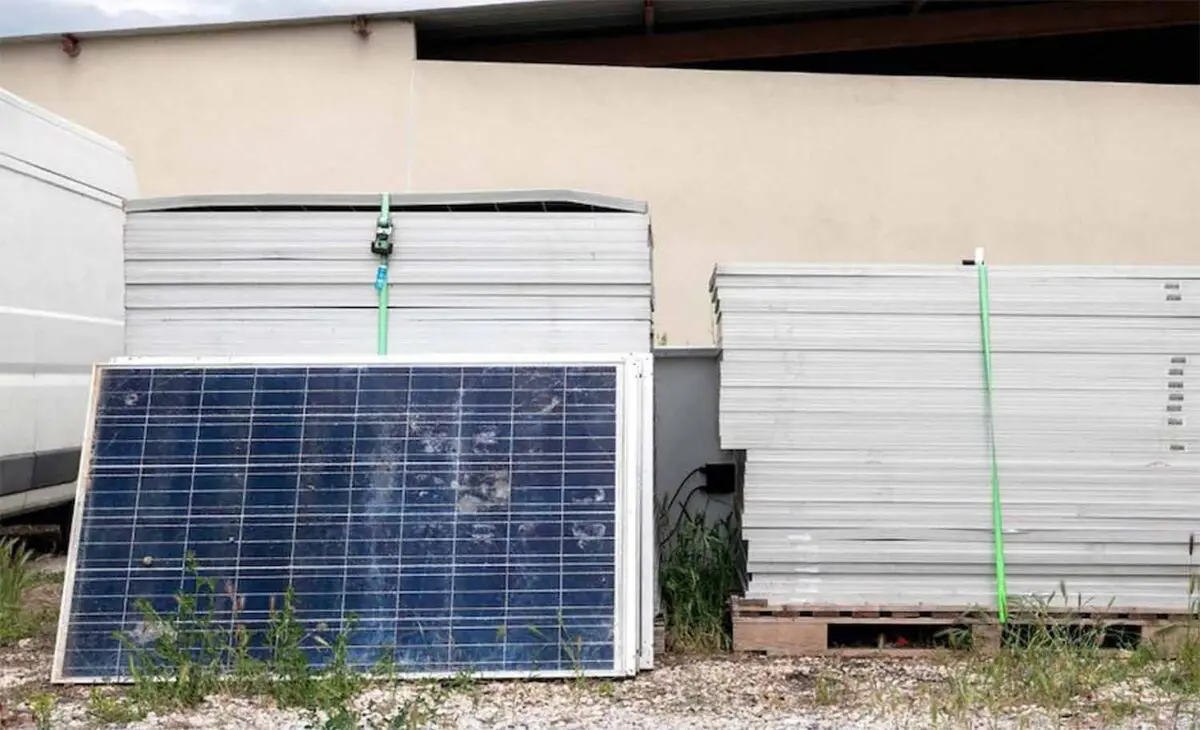Federal and state governments have agreed to work on a new mandatory recycling scheme for solar modules, to ensure that millions of discarded solar PV panels do not end up in landfill.
The Smart Energy Council estimates that four million solar panels are removed from Australian rooftops each year, and less than five per cent are recycled – even though they can be. (Renew Economy questioned that number as it seems high, but we were told it is about right).
Without intervention, experts say, the amount of solar waste is expected to nearly double in the next five years to 91,165 tonnes in 2030, from 59,340 tonnes in 2025.
One of the ironies of the success of the federal battery rebate scheme is that many households are using the opportunity to upgrade their solar systems, and in many cases that means replacing them with bigger and more modern systems.
At Friday’s meeting of the Energy and Climate Change Ministerial Council in Sydney, state and federal ministers endorsed a paper presented by the NSW state government that advocates a national mandated scheme, to ensure solar panels are recycled or remanufactured.
NSW says it is already working on mandated stewardship for batteries, and it will also work on a Regulatory Impact Statement that will help government evaluate options for a national mandatory product stewardship scheme.
“We are proud to be leading the charge to create a unified approach to solar panel waste management and recycling,” NSW minister for energy and environment said in a statement.
“This work builds on the momentum of our nation-leading reform on batteries, and the new legislation already in place in NSW to enable a mandatory product stewardship scheme – suppliers take responsibility for the safe design, recycling and disposal of their products.”
The surge in solar waste is expected to be highest in metropolitan cities, with volumes starting to grow in regional areas from large scale solar facilities after 2030.
Many solar panels are disposed of well before the end of their useful life and typically end up in landfill or are stockpiled or exported – yet more than 95 per cent of a solar panel is recyclable and contains valuable materials including aluminium, glass, copper, silver, and silicon which can be beneficially recovered and reused.
The Smart Energy Council estimates that around a third of solar panels could be re-used instead of being thrown away. This could contribute to a potential 24 gigawatts of energy by 2040 or enough to power six million homes a year.
“It’s been a decade since the federal government said solar panels going into landfill was a problem, now four million panels are coming off roofs a year with less than five per cent being recycled,” SEC chief executive John Grimes said in a statement.
“The time for talk has passed, an immediate first step is a national solar stewardship pilot to keep the industry alive and inform the Regulatory Impact Statement.”
As Sophie Vorrath has reported in Renew Economy’s sister site, One Step Off The Grid, the SEC presented a proposal to the former federal Coalition government years ago, but it was rejected. It has since rolled out pilots with the help of the then Queenland Labor government.
Several companies have established recycling operations in Australia, and research continues on improving extraction technologies.
See also: Solar Insiders Podcast: Australia’s waste panel problem – and how to turn it into a goldmine
See also: Solar Insiders Podcast: Reuse, reclaim or recycle?
NSW will report back on its recommendations in early 2026. The ministerial communique published on Friday after the meeting said that they are keen to leverage the solar waste challenge and grow a domestic re-manufacturing industry.
The ministerial move was endorsed also by the Australian Manufacturing Workers’ Union, which said a scheme meant more work in Australia, and the Australian Energy Infrastructure Commissioner Tony Maher, who said communities expect renewable energy products to be built and retired responsibly.
“It’s pleasing to see industry is taking this social license issue seriously and are supporting steps toward mandating their stewardship of all solar panels,” Mahar said.
Giles Parkinson is founder and editor-in-chief of Renew Economy, and founder and editor of its EV-focused sister site The Driven. He is the co-host of the weekly Energy Insiders Podcast. Giles has been a journalist for more than 40 years and is a former deputy editor of the Australian Financial Review. You can find him on LinkedIn and on Twitter.

